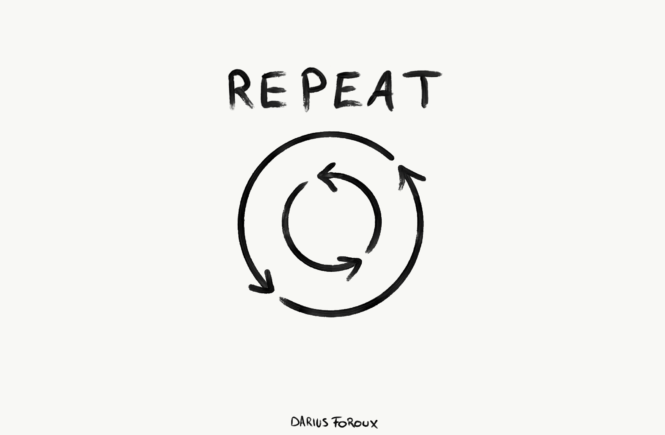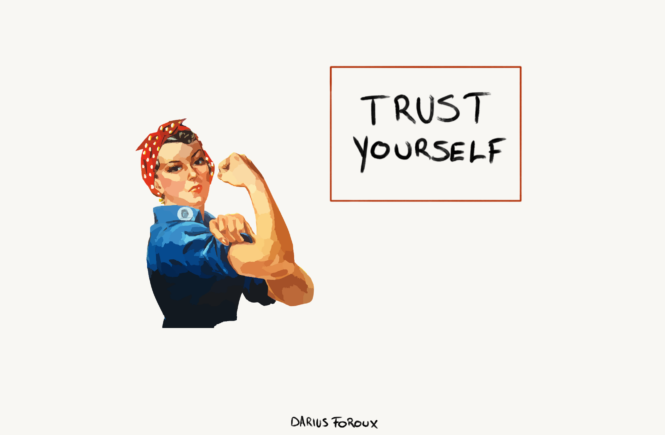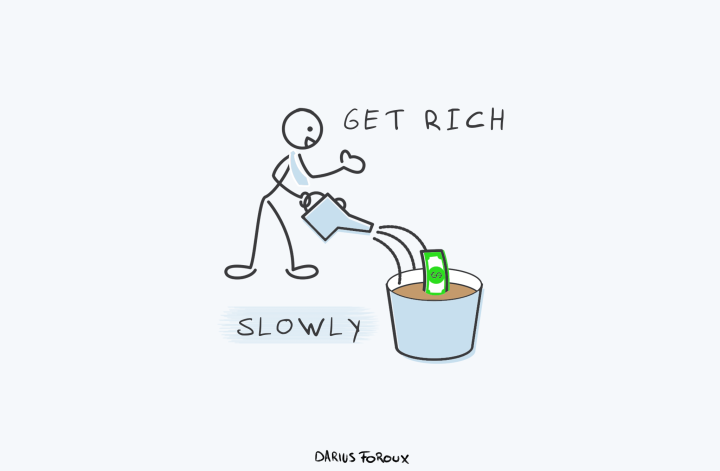Do you ever feel shitty about yourself? Do you ever feel like you have zero self-confidence? It happens all the time to most of us.
It seems like everyone is building billion-dollar businesses, becoming YouTube stars, or making it big on Instagram.
Deep down, most of us also know that it’s 99% bullshit. But at the same time, we see all these people living awesome lives, and we don’t care if it’s real or not.
Whether you want money, fame, travel, or none of that stuff, it doesn’t matter because it always comes down to this: How confident are you?
- Are you confident enough to say “screw it,” and pursue your dream?
- Are you confident enough to say “screw all this bullshit, I don’t need it,” and stay grounded?
You see? Self-confidence is important if you want to win at life — no matter what you’re after, a lack of confidence will always hold you back.
Research even shows that a lack of self-confidence is associated with:
- Depression
- loneliness and feeling left out
- Lower academic achievement
- Lower life satisfaction
I’ve researched self-confidence for years, and the most practical theory that I’ve found is something called ‘confidence by competence.’
In 1952, Bernice Milburn Moore published an article called Self-Confidence For Competence in the journal of Educational Leadership. In the article, she discusses self-confidence for teachers, but I’ve found it useful in all settings of life.
If you look up the definition of self-confidence, you always get more or less the same description. Moore describes it as “a trust in self, a faith in one’s ability to be able to meet situations as they may arise.”
But more importantly, she says:
“Self-confidence without competence is of as little use as is competence without self-confidence.”
It means this: Going to business school is competence. But using your business competence to lead a company is self-confidence plus competence. They are only useful when combined.
That analogy goes both ways. Just confidence in yourself, without competence, is also useless — talking the talk is not a sustainable strategy.
You need the talk and bravado, but you also need to develop the skills to back up your talk.
Building Your Self-Confidence
So you become more self-confident if you become better at what you do. That’s the system, and it’s backed by research.
How can you use this information? The following process is easy—but completing the steps takes hard work.
It goes like this:
- Improve your competencies
- Put them into practice
- See results
- Grow more confident
- Repeat
That’s the process.
“That’s great and all, but what if I don’t see results? Plus, I don’t have the time to practice.”
If you want to make excuses, that’s fine. It’s your life. But this method of building self-confidence is based on real, tangible steps, and not intangible stuff like affirmations. Confidence doesn’t appear magically by itself.
You can tell yourself every day that you’re confident, lucky to be alive, or whatever — but if you lack the skills to get shit done, you’ll never truly believe in yourself.
And that’s my biggest issue with a lot of self-help theories and writers. Yes, affirmations, positive thinking, and goal setting are all great, but it’s NOTHING without execution.
How can you expect to build confidence if you never do anything? It’s impossible.
“Nothing builds self-esteem and self-confidence like accomplishment.” — Thomas Carlyle
“What competencies should I improve?”
That depends on what you’re after. But there are also some skills that I believe every person can benefit from.
- Emotional intelligence — Research shows that humans are inherently social. Without good relationships, we die. And if you want good relationships, you need emotional intelligence: Understanding other people’s emotions and how to respond to them. This is something you can learn.
- Self-awareness — You can practice self-awareness by continuous self-reflection. Write down your thoughts; try to understand why you do what you do, what you can do better, and what you’re doing well. Know yourself.
- Problem-solving — Our current school system dates from the industrial revolution. We’re trained to become cogs in a wheel. We’re not trained to solve problems in complex situations — instead, we do what we are told. But the world has changed and in the current state, the person that is better at problem-solving will win.
Don’t fool yourself into thinking that your life will be better as long as you wish for it.
When you put in work and see the results — like a stronger body, more energy, more money, or whatever you’re after — you start believing in your ability to get shit done.
Now go out there, do things, get better at them, see results, repeat that process and grow more confident.




